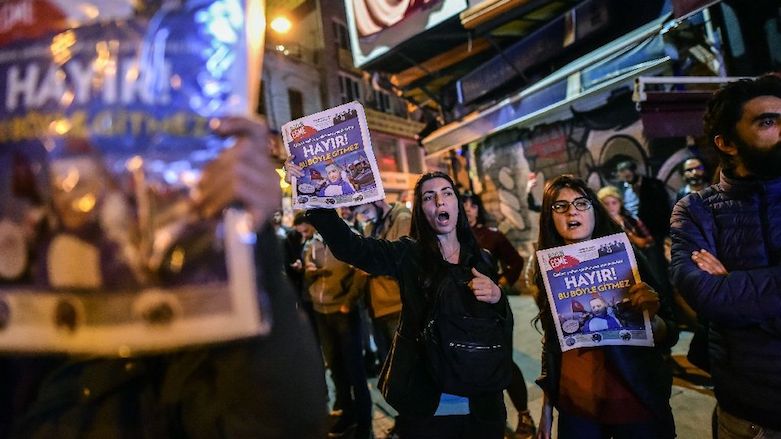Int'l watchdog releases damning report on Turkey referendum

ERBIL, Kurdistan Region (Kurdistan24) - The constitutional referendum in Turkey which President Recep Tayyip Erdogan claimed as a victory was contested on an "unlevel playing field," said the Organization for Security and Co-operation in Europe (OSCE) in a report it released on Monday.
The intergovernmental OSCE to which Turkey is a member said the two sides in the campaign did not have equal opportunities, limitations on fundamental freedoms "had a negative effect" on the voters who rejected empowerment of Erdogan.
The international observers could visit a limited number of polling stations.
Special military zones were in place in parts of six Kurdish provinces, affecting some 670,000 voters.
The European observers also raised "concerns about the voter registration of those who had to flee" towns and districts where Turkish army conducted operations with heavy weaponry against the Kurdistan Workers' Party (PKK) in 2015, and 2016.
The United Nations High Commissioner for Human Rights put the numbers of displaced Kurds between 355,000 and 500,000 people in a January report.
On referendum day, observers were informed that some of these voters were not able to vote.
“In general, the referendum did not live up to Council of Europe standards. The legal framework was inadequate for the holding of a genuinely democratic process,” said Cezar Florin Preda, Head of the delegation from the Parliamentary Assembly of the Council of Europe (PACE), another monitoring body contributing to the OSCE report.
"A limited and not fully transparent debate" while the pro-Kurdish opposition Peoples' Democratic Party (HDP) co-leaders Selahattin Demirtas and Figen Yuksekdag were in jail along 11 other lawmakers diminished confidence in the constitutional reform process, the report read.
Authorities banned HDP’s campaign song in Kurdish on the grounds it violated integrity of the state and Turkish as the official language.
“The referendum took place in a political environment in which fundamental freedoms essential to a genuinely democratic process were curtailed under the state of emergency," added Tana de Zulueta, head of a watchdog group.
Provincial governors used state-of-emergency powers to restrict the freedom of assembly and expression further.
“A state of emergency should never be used to undermine the rule of law,” Preda said, according to a statement published on the OSCE website.
“We observed the misuse of state resources, as well as the obstruction of ‘No’ campaign events," Zulueta added.
The campaign rhetoric was tarnished by senior Turkish leaders including President Recep Tayyip Erdogan and Prime Minister Binali Yildirim equating ‘no’ supporters with "terrorist" sympathizers, said the OSCE.
There were also numerous cases ‘no’ supporters facing police interventions and violent scuffles at their events.
The Supreme Electoral Council issued instructions late on the day of voting that "significantly changed the ballot validity criteria, undermining an important safeguard and contradicting the law," further read the report.
Editing by Ava Homa
